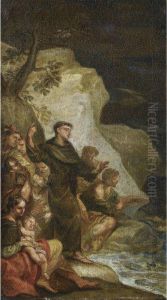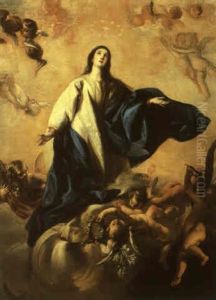Jose Jimenez Donoso Paintings
José Donoso Yáñez, known as José Donoso, was a prominent Chilean writer, born on October 5, 1924, in Santiago, Chile. He is often considered one of the leading figures of the Latin American literary boom of the 1960s and 1970s, alongside authors such as Gabriel García Márquez, Mario Vargas Llosa, and Julio Cortázar. Donoso's work is recognized for its intricate exploration of social and psychological themes, with a particular focus on the complexities of human nature and the fabric of Chilean society.
Donoso began his education in Santiago, but his literary career truly took shape after his move to Buenos Aires, Argentina, and later to Mexico, Europe, and the United States, where he engaged with a diverse array of literary cultures and movements. His experiences abroad, especially in the United States where he taught at several universities, significantly influenced his writing style and thematic concerns.
His most famous novel, 'El obsceno pájaro de la noche' (The Obscene Bird of Night), published in 1970, is a landmark in Latin American literature, showcasing Donoso's skillful use of magical realism and psychological depth. This novel, along with others like 'Casa de campo' (A House in the Country) and 'Hell Has No Limits', delve into the decay of the Chilean aristocracy, the fluidity of identity, and the blurred lines between reality and fantasy, themes that recur throughout his work.
Donoso returned to Chile in the 1980s after spending many years abroad. His later works continued to explore the social and political changes in his home country, reflecting the broader shifts occurring across Latin America. Despite the international acclaim he received, Donoso maintained a complex relationship with the literary establishment and was known for his introspective and often critical view of the role of the writer in society.
He passed away on December 7, 1996, in Santiago, leaving behind a legacy that has had a lasting impact on Chilean literature and the broader Latin American literary canon. His work remains a subject of study for its innovative narrative techniques, its profound psychological insight, and its critical examination of social and cultural issues.


